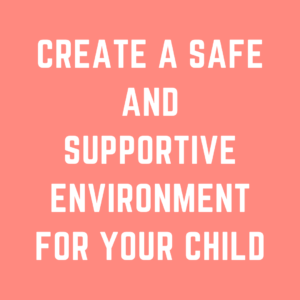Discipline is an essential aspect of parenting. It helps to teach children right from wrong, and it instills values that will serve them well throughout their lives.
However, there is a significant difference between discipline that involves punishment and discipline that is based on guidance, support, and teaching.
A positive discipline is a parenting approach that focuses on the latter, emphasizing the importance of teaching children self-control and responsibility rather than using punishment to correct behavior.
Positive discipline is based on the principles of mutual respect, empathy, and communication. It involves setting clear expectations and boundaries, acknowledging and addressing your child’s feelings and needs, and using positive reinforcement to encourage good behavior.
Positive discipline can be applied in many different situations, including disciplining a child who has misbehaved, preventing negative behavior from occurring in the first place, and managing everyday challenges such as homework or chores.
There are many benefits to using positive discipline in parenting. Here are some of the most significant:
- Builds a Strong Parent-Child Relationship
Positive discipline helps to build a strong and positive relationship between parents and children. When children are raised with positive discipline, they feel valued and heard.
They understand that their parents care about them and want what is best for them. This sense of mutual respect and understanding can help to create a strong bond between parents and children that will last a lifetime.
- Teaches Responsibility
Positive discipline teaches children responsibility and accountability for their actions.
When children misbehave, positive discipline focuses on teaching them the consequences of their actions rather than punishing them.
This helps children to understand that their actions have consequences and that they are responsible for their behavior.
- Encourages Self-Control
The positive discipline emphasizes teaching children self-control and self-regulation.
Rather than punishing children for misbehavior, positive discipline focuses on teaching children how to manage their emotions and impulses in a constructive way.
This helps children to develop self-control, which will serve them well throughout their lives.
- Fosters Self-Esteem
Positive discipline helps to foster self-esteem in children. When children are raised with positive discipline, they feel valued and heard.
They understand that their parents care about them and want what is best for them. This can help to boost their self-esteem and confidence, which can help them to succeed in many areas of life.
- Improves Communication
Positive discipline encourages open and honest communication between parents and children.
When children are raised with positive discipline, they feel comfortable talking to their parents about their feelings and needs.
This helps parents to understand their child’s perspective and respond in a constructive and empathetic way.
- Promotes Positive Behavior
Positive discipline encourages positive behavior in children. Rather than punishing children for negative behavior, positive discipline focuses on rewarding positive behavior.
This helps children to understand that good behavior is valued and that it has positive consequences.
- Builds Life Skills
Positive discipline helps to build important life skills in children, such as problem-solving, conflict resolution, and empathy.
When children are raised with positive discipline, they learn how to manage their emotions and interact constructively with others.
This can help them to succeed in many areas of life, including school, work, and personal relationships.
Conclusion
Positive discipline is an essential approach to parenting that emphasizes teaching, guidance, and support rather than punishment.
Positive discipline helps to build a strong parent-child relationship, teaches responsibility and self-control, fosters self-esteem, improves communication, promotes positive behavior, and builds important life skills.
By using positive discipline in parenting, parents can help their children to grow into responsible, empathetic, and well-adjusted adults who are equipped to succeed in life.






